This history of Blaxploitation cinema, dispatches from the front lines of war, adventurous volcanologists, portraits of legendary artists, and a group of jackasses that repeatedly hit each other in the balls—just a few of the subjects and stories this year’s documentaries brought us. With 2022 wrapping up, we’ve selected the features that left us most impressed. If you’re looking for where to stream them, check out our handy guide here.
All That Breathes (Shaunak Sen)
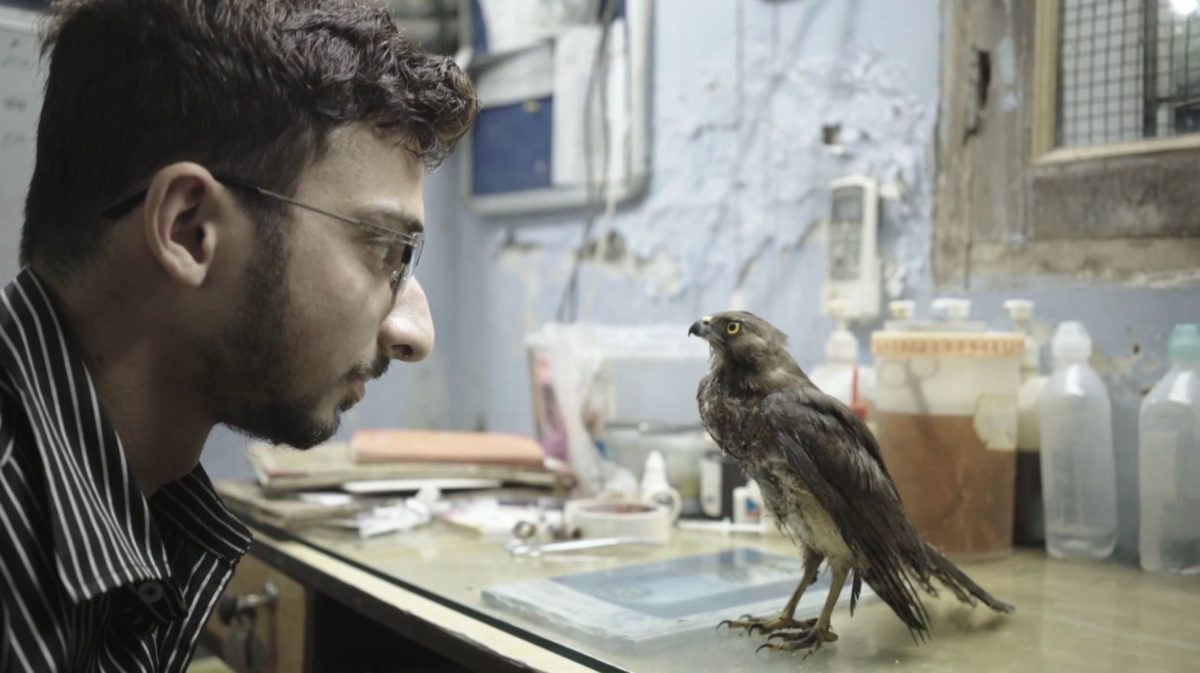
Move over, Sandra Bullock—there’s a new Bird Box in town. The only film to have collected prizes at both Sundance and Cannes, Shaunak Sen’s taut, tender documentary has a healing power that’s sourced straight from its subjects: two brothers in Delhi who have devoted their lives to saving the Black Kite—a majestic, medium-sized, hypercarnivorous raptor of the air—from going extinct in Delhi’s fatally-polluted skies. Set to the backdrop of India’s rising social turmoil and Islamophobia, the threatened and neglected state of this bird reflects the brothers’ reality in a place that doesn’t fully recognize their humanity. But that doesn’t stop them from operating. It seems nothing can. From a garage to a fully funded, state-of-the-art facility, All That Breathes tracks the brothers as they weather storm after storm and find flight with their fellow Kites. – Luke H.
All the Beauty and the Bloodshed (Laura Poitras)

Many retrospective portraits of significant artists tend to go through rote retellings of stories and flowery plaudits from talking heads. All the Beauty and the Bloodshed is neither hypnotized by living in the past nor concerned with the artist as a relic of a bygone era. Instead all of Nan Goldin’s art leads up to the current moment. History doesn’t exist in a vacuum, and who Goldin was—what her work did for the people who saw it and lived it all—culminates in the importance of a continued struggle in the present day. – Soham G.
Descendant (Margaret Brown)
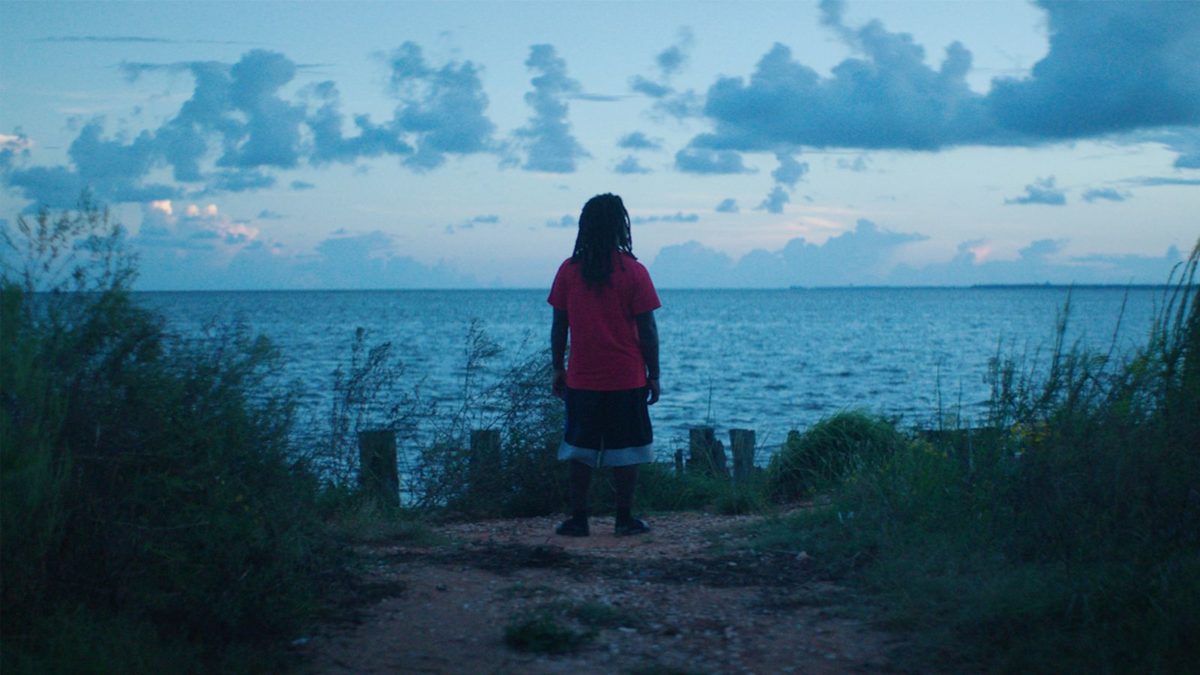
A rich, awe-inspiring archival tapestry woven with buried history, neglected memory, incredible cinematography, Zora Neale Hurston, and generational communal resistance, Margaret Brown’s Descendant is a clear look at how Black stories have been and are still slyly, systematically suffocated in the US. We follow the Alabama-based descendants of the Clotilde––the last ship known to have successfully brought (110) kidnapped African slaves back to the US in 1860––as they continue their 160-year effort to get their known oral history discovered, affirmed, and recognized in an official capacity. It’s a powerful depiction of unwavering reclamation in modern times, the way capitalism adapts to allow the same kind of power mongers to exploit it, the many attitudes that surround shameful historical revelation, and the complexity in mass reparations, no matter how deserved they are. Few films will ever unveil history before your eyes so literally and with such captivating, compelling consequences. – Luke H.
Expedition Content (Veronika Kusumaryati, Ernst Karel)
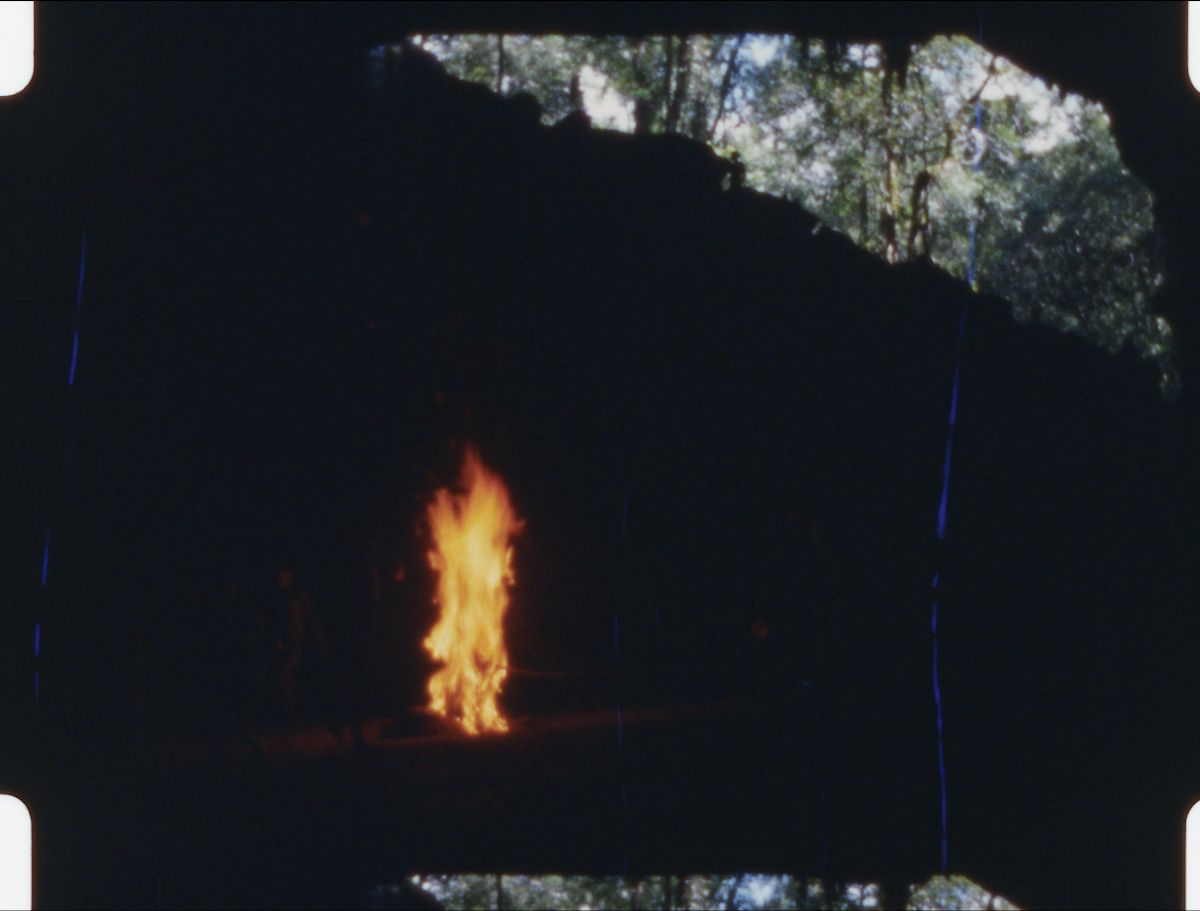
As a “film” with almost no images and frequently refusing to subtitle the speech of people in New Guinea, emphasizing audio recordings from the Harvard anthropologists and filmmakers working there in the ‘60s, Expedition Content tries to find formal means to reject the colonialism, where white people transform their subjects into content. Two great moments, in very different modes: the opening discussion of color and light and the extended racist jokes near the end, complete with mocking banter about jazz musicians delivered in a “blaccent.” – Steve E.
Fire of Love (Sara Dosa) and The Fire Within (Werner Herzog)
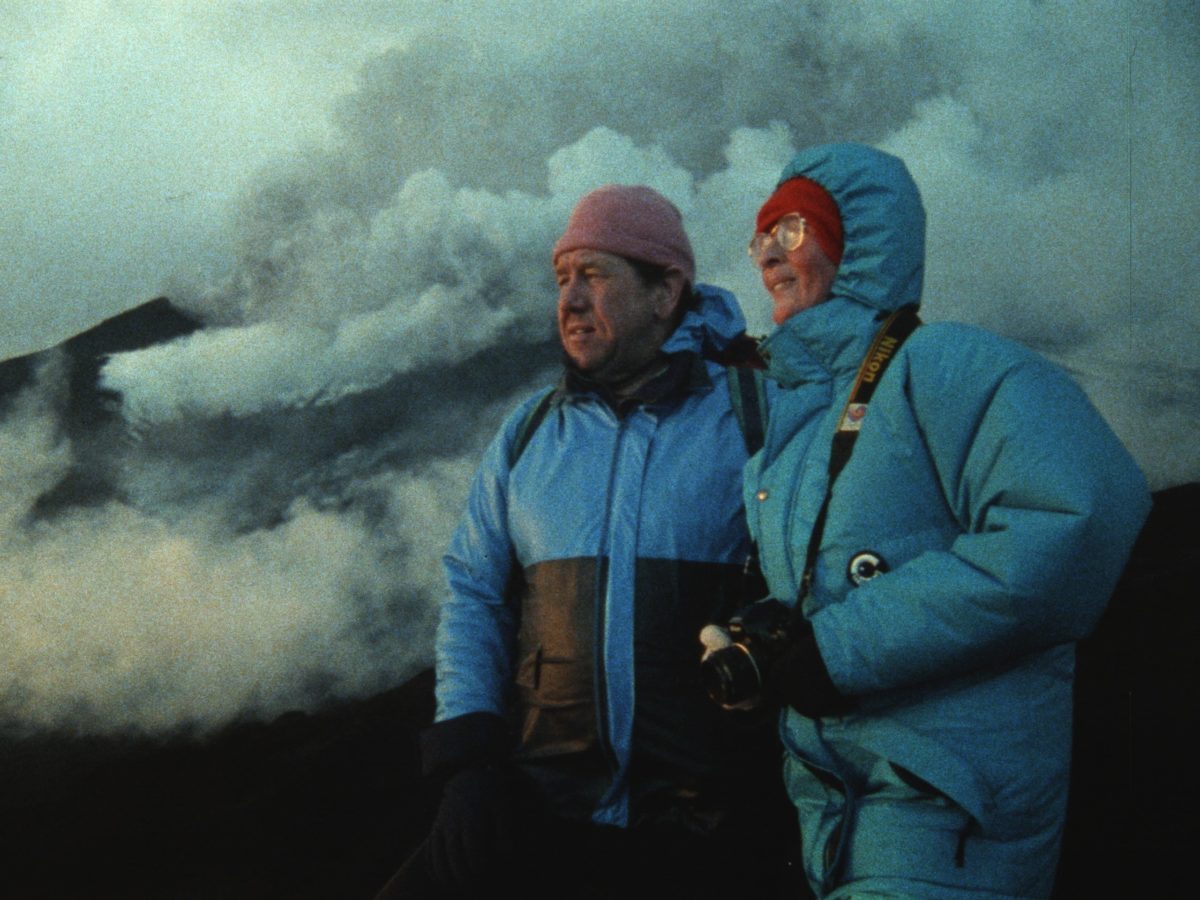
Working almost exclusively from the same archive of footage, Werner Herzog and Sara Dosa have produced two divergent films recounting the lives, love, and deaths of volcanologists Katia and Maurice Krafft. In tone and sentiment, The Fire Within and Fire of Love are disparate yet nicely complimentary—there’s fun to be had in such a clash of sensibilities. Where Dosa is sweet (romance, Francophilia, Miranda July), Herzog is characteristically austere (rotting cows, human corpses, surrealism, absurdity). When Maurice begins affecting a red beanie, a nod to his hero Jacques Cousteau, Dosa spots a chance to homage Wes Anderson. Herzog outright mocks him, yet his film is ultimately the more reverent. – Rory O.
Is That Black Enough For You?!? (Elvis Mitchell)
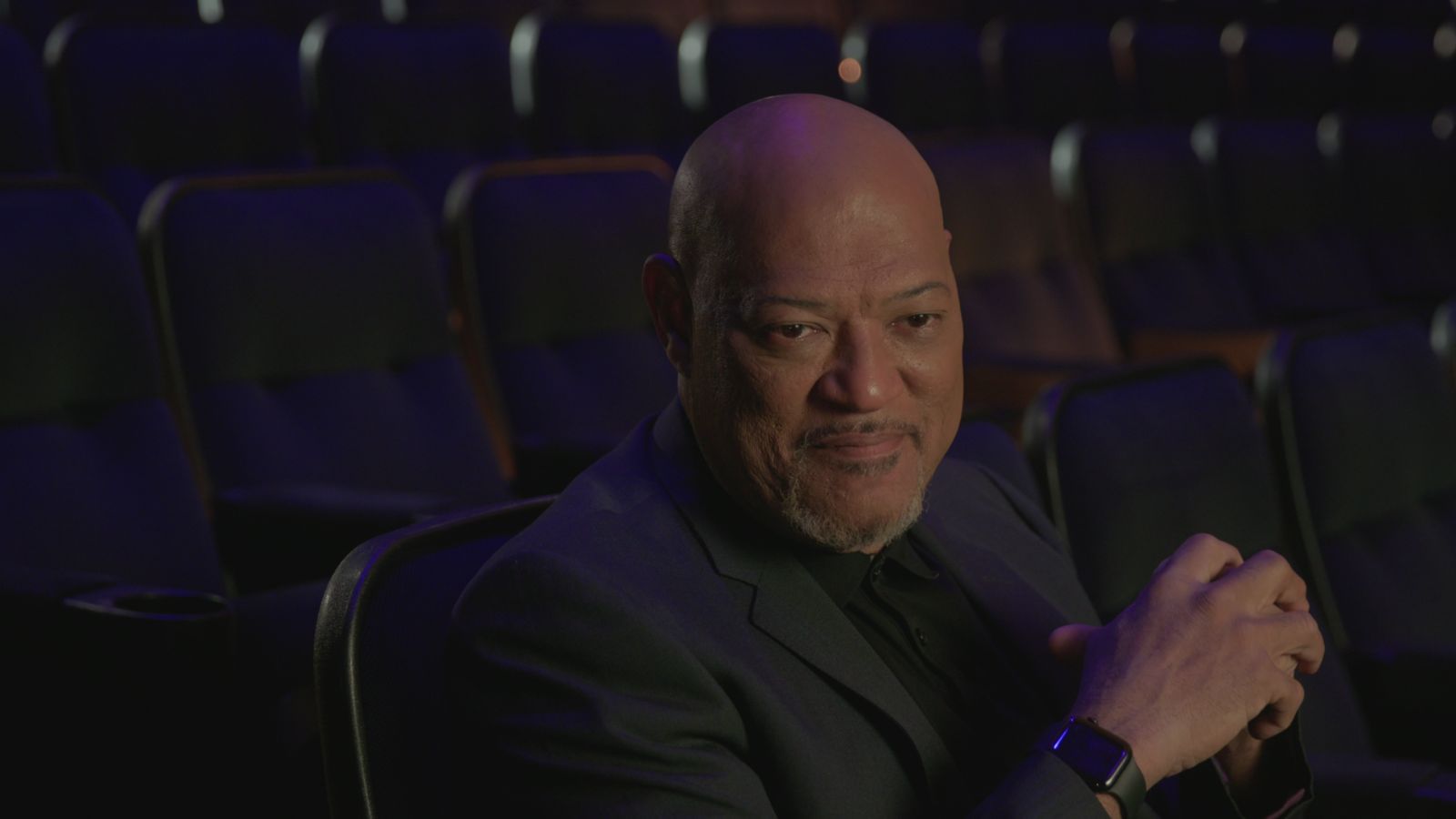
A comprehensive, personal, and kaleidoscopic look at representation, Elvis Mitchell’s Is That Black Enough For You?!? is a passionate and loving walk through film history framed by Blaxploitation cinema of the 1970s. Written, directed, and narrated by the master conversationalist, curator, film scholar, and cultural critic, this is a densely packed visual essay told through film clips, archival materials, and interviews with Black stars of multiple eras who speak to the influence of this sub-genre on their lives and careers. – John F.
Jackass Forever (Jeff Tremaine)

The gang gets back together a decade after Jackass 3-D, proving it’s not just blockbusters like Top Gun or Avatar that demand a theatrical experience. What stands out at first sight with Jackass Forever is not Johnny Knoxville’s gray hair, but rather just how little has changed from their roots as a MTV series back in 2000. Sure, the cameras are nicer and a few of the stunts require more production value, but this is largely the same cast of clowns getting hit repeatedly in the nuts for laughs. Sometimes a cup test is a cup test, and I commend director Jeff Tremaine, Knoxville, and co. for always recognizing that. – Caleb H.
Moonage Daydream (Brett Morgen)

Eschewing the now-standard tropes of a rock documentary, Brett Morgen’s Moonage Daydream is a sensory overload. Kaleidoscopic and trippy in the best ways, it transposes Bowie’s aesthetic onto a film that mixes greatest hits, newfound archival footage, and montage to create a fully immersive experience capturing both who Bowie was and what he was trying to convey through music and art. Daydream is an invitation to do more research on Bowie, but also a persuasive argument for the continued survival of documentaries in theaters—its onslaught is meant to be seen on as big a screen as possible. – Christian G.
Mr. Bachmann and His Class (Maria Speth)

The best Frederick Wiseman movie of the year, Maria Speth’s 217-minute Mr. Bachmann and His Class observes a group of middle school students in the small German town of Stadtallendorf. Captured with a warm, patient eye, we witness Bachmann’s unconventional yet captivating methods of teaching as he strives to connect a multicultural melting pot. As he goes to great lengths to ensure each student doesn’t judge another merely on external factors, a soul-sharing dialogue is opened up, acting like a microcosmic example the rest of the world would do well in gleaning. – Jordan R.
Navalny (Daniel Roher)

There’s a decent chance you’ll never see a movie as imminent as a 2022 documentary about Putin’s only real political opposition in Russia, Alexei Navalny, that was shot from 2020-2021 and premiered less than a month before the invasion of Ukraine. A feverish thriller that seeps into your bloodstream as the narrative grips you––or perhaps explodes––in real time, Daniel Roher’s Navalny is a searing look at the state of things in Russia and a gleaming portrait of the kind, humble voice of the anti-corruption movement whose eccentricity and sense of humor paints him more like a long-stay SNL cast member than #1 on Putin’s hit list. Roher was in all the right places at all the right times and the result, the captured history, is inconceivable. Just wait until Navalny’s crank-calling Russian operatives to get to the bottom of his own poisoning––it has to be seen to be believed. And it’s still probably crazier than you’re imagining. – Luke H.
A Night of Knowing Nothing (Payal Kapadia)
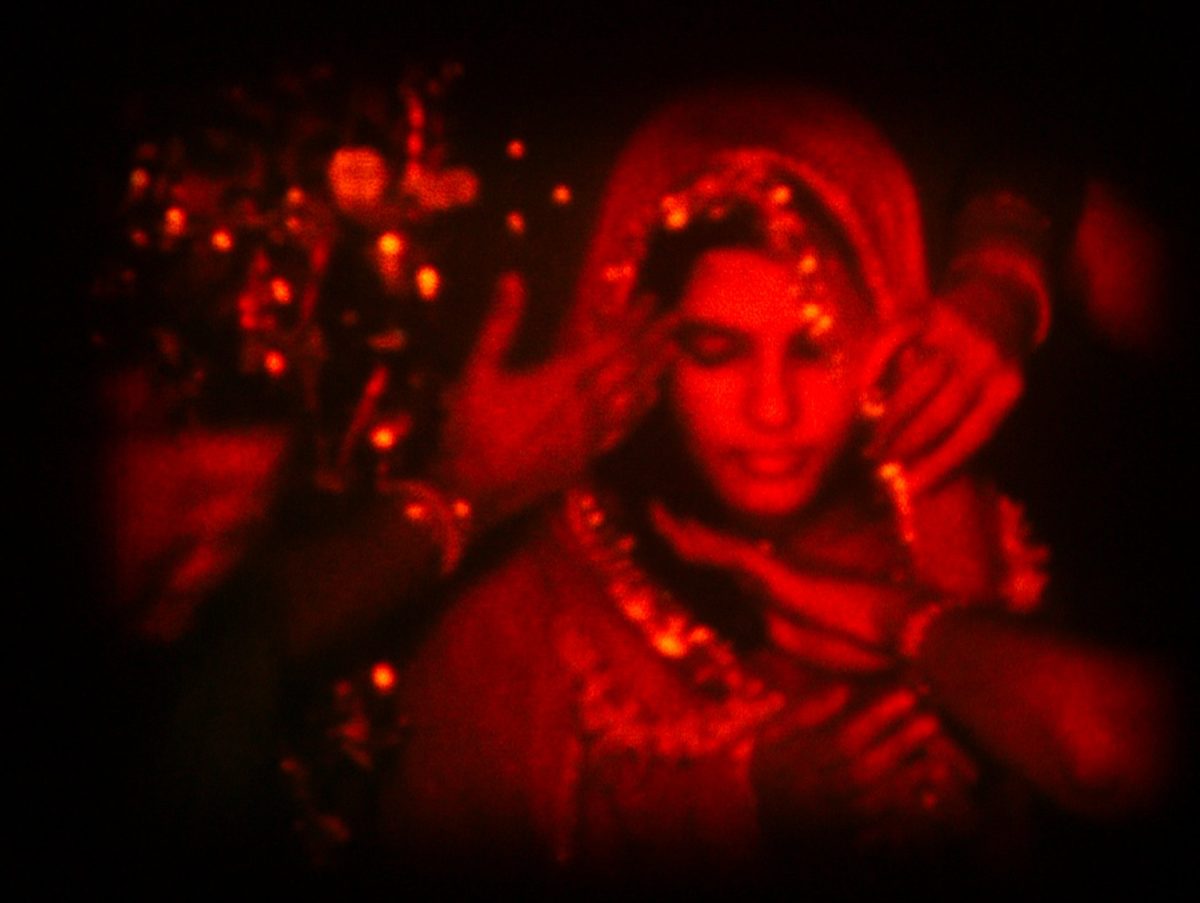
What starts as an abstract love story through letters recovered from a college in India slowly transforms into a brutal awakening––a flowing, livewire account of student protest and violent retaliation at New Delhi’s Jawaharlal Nehwu University over the past several years. Steeped in an eerie, all-consuming hypnosis, writer-director Payal Kapadia’s debut feature resonates like a veteran experimental work––more like something Godard would’ve made in his 80s than something by a newcomer with three shorts to their name. Under Kapadia’s assured, inventive direction, A Night of Knowing Nothing is a river of revolution, forsaken love, political poetry, fractured memory, collective morality, human-rights atrocities, and existential crises coated in a shimmering black-and-white film grain and set to a blend of narrated docu-fiction too artfully spare and entrancing to interrogate until after it’s suddenly rushed by. Kapadia is able to stretch her avant-garde wings while both entertaining us in form and educating us on the contemporary fight against casteism in India. But perhaps most impressively she’s made the rare documentary that calls the viewer to action with a true, contagious sense of conviction and compassion. – Luke H.
Retrograde (Matthew Heineman)
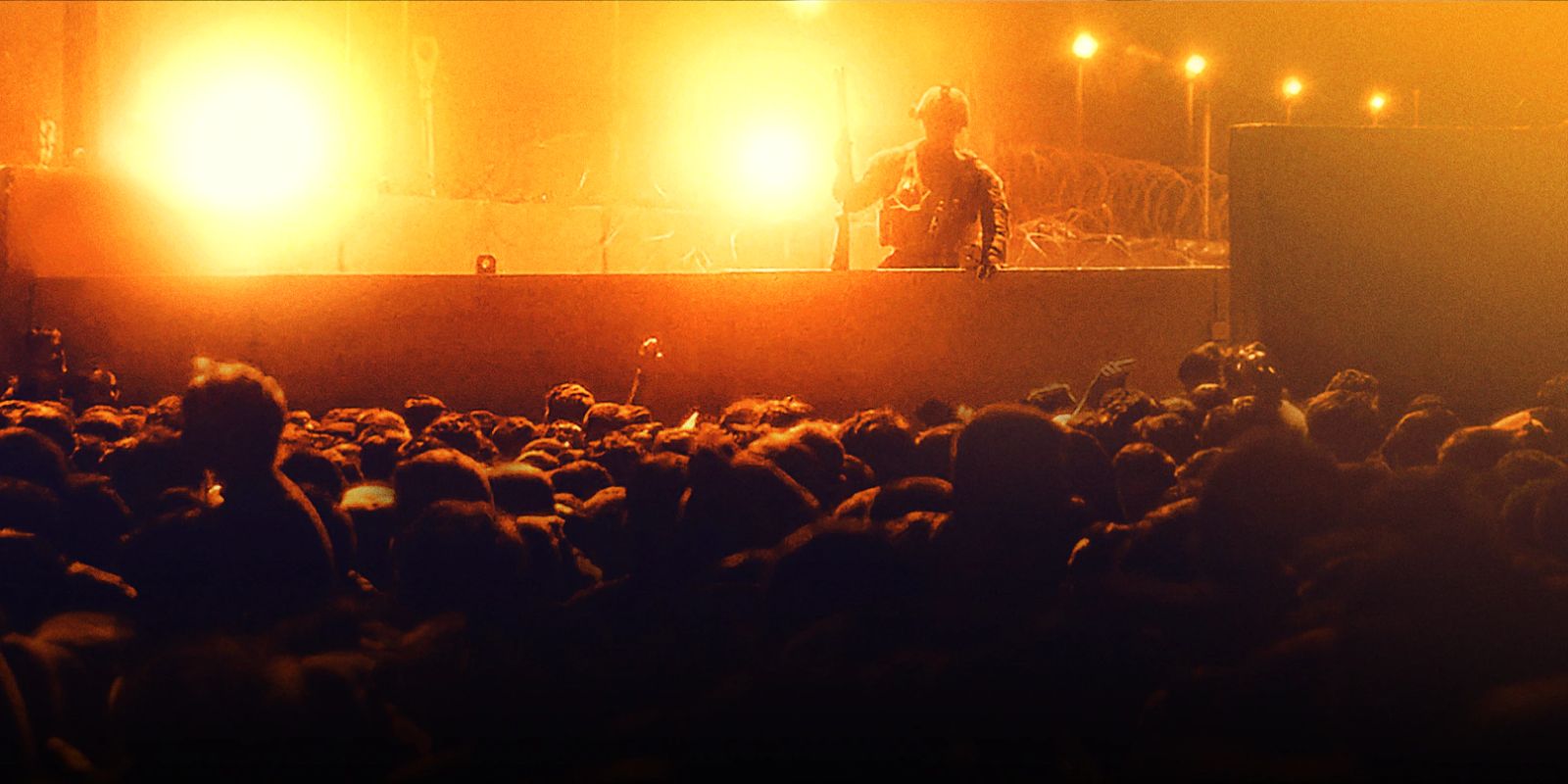
Matthew Heineman’s newest documentary, Retrograde, brings him (and us) to the end of the longest conflict in United States history: the War in Afghanistan. With the initial intent to make a project around a group of Green Berets, Heineman found it necessary to shift gears, capturing the last nine months of this 20-year-war with stunning cinematography and an immersive eye. The film turns into a bifurcated portrait: first on the final American troops there and then shifting to the headstrong—albeit expectedly anxious—Afghan Army Lt. Gen Sami Sadat, who is forced to pick up the pieces in the fight against the Taliban without the U.S. military support they have come to rely on. The results are a harrowing look at the aftermath of Biden’s decision (based on an order enacted by Trump) as we get a front seat the truly devastating footage of cities falling and people left behind attempting to flee. – Jordan R.
Taming the Garden (Salomé Jashi)

If you happen to maintain your own garden and feel stressed about the upkeep, look no further than Salomé Jashi’s visually striking observational documentary to put things in perspective. The grounds at the center of Taming the Garden, however, aren’t glimpsed until the film’s final moments; this journey through the country of Georgia is almost entirely about the grueling task of transplanting majestic, century-old trees many, many miles by land and sea. Lest you believe this can be done with some simple equipment, the tree at the center of this story weighs as much as a house and requires months upon months of work to find its new home. In capturing this process, Jashi takes a vivid, evergreen look at the effects of gratuitous wealth. – Jordan R.
Tantura (Alon Schwarz)
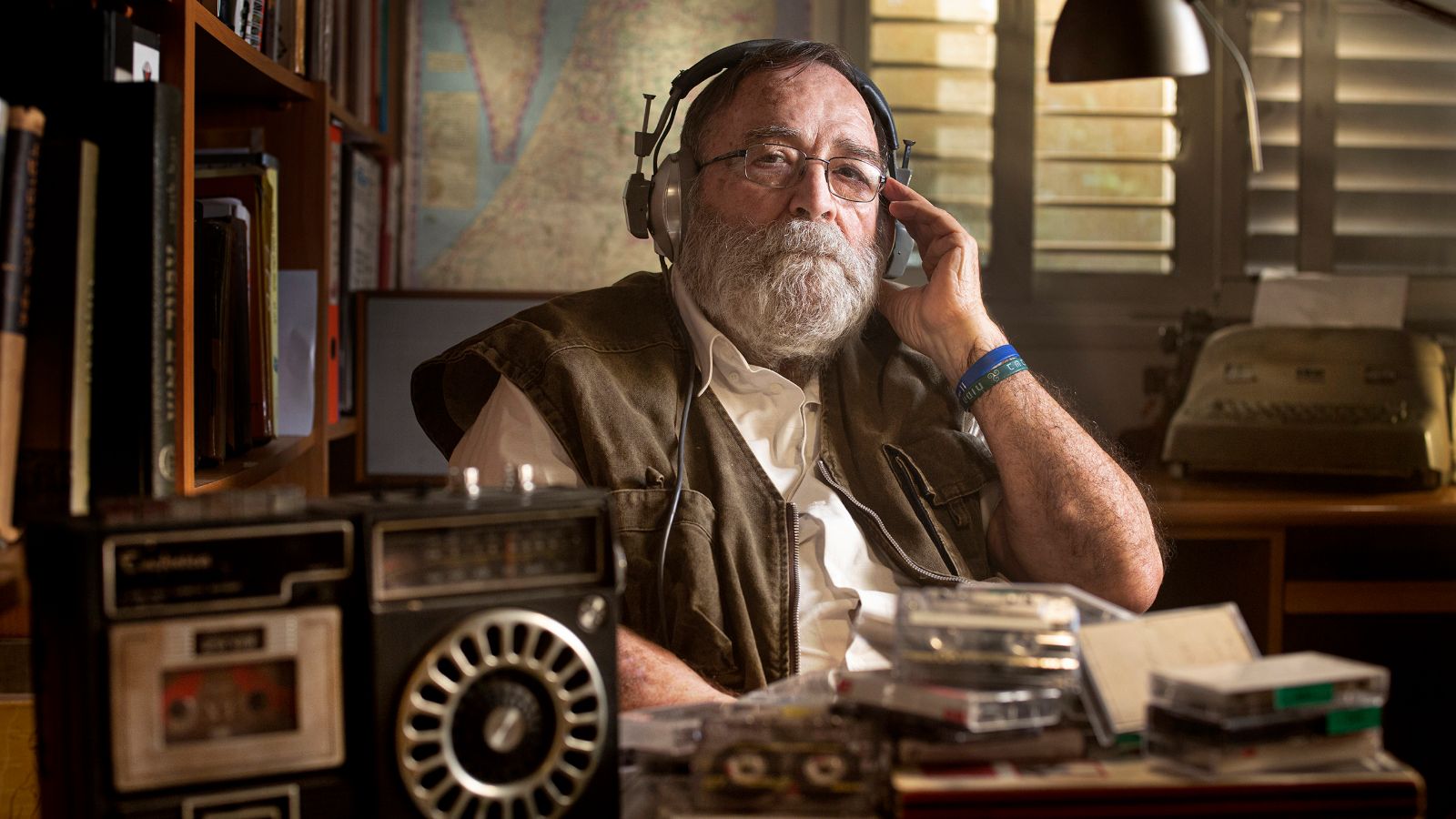
Perhaps the most harrowing thing in Tantura, a striking documentary from Alon Schwarz, is the nervous laughter that slips from old men allegedly complicit in a massacre decades prior. They snicker and smirk at the suggestion of their malice, either convinced they were justified or blinded by their own lies. It’s a brutally human reaction that is deeply unsettling to absorb. War allows for the rationalization of evil. And the banality that often follows appears to be an act of denial. As Schwarz and his collaborators present the evidence of the eradication of the Palestinian village Tantura by Alexandroni soldiers (an Israel Defense Forces brigade), this all becomes quite clear. – Dan M.
Terra Femme (Courtney Stephens)
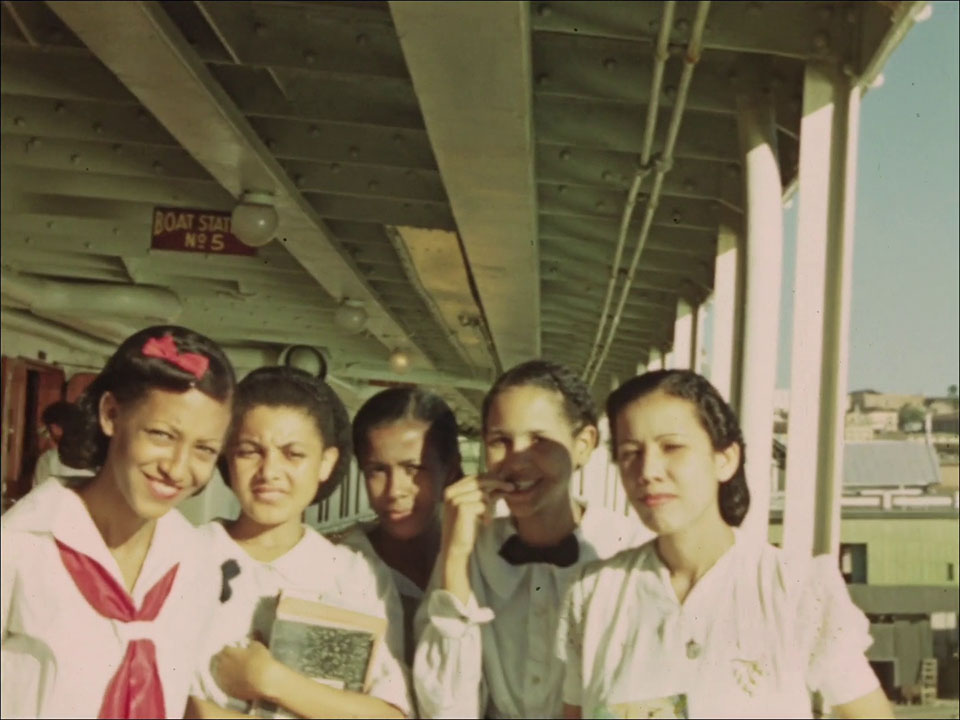
Edited by director Courtney Stephens from travelogues women recorded between the 1920s and 1950s, Terra Femme suggests an alternate version of cinema. When female directors were excluded by Hollywood, this “amateur” filmmaking practice was the most they could achieve, and Terra Femme examines their vision. It also focuses on the tourist’s gaze, which comes with unique pitfalls. At many screenings, Stephens added an element of live performance by delivering voiceover in person. – Steve E.
Honorable Mentions
- 2nd Chance
- Aftershock
- Babi Yar. Context
- Bad Axe
- The Balcony Movie
- Beba
- Children of the Mist
- Dreaming Walls: Inside the Chelsea Hotel
- George Carlin’s American Dream
- Kash Kash
- Last Flight Home
- Marx Can Wait
- Meet Me in the Bathroom
- Rock Bottom Riser
- Riotsville, U.S.A.
- Sirens
- “Sr.”
- The Super 8 Years,
- The Territory
- Three Minutes: A Lengthening
- This Much I Know to Be True
- We
- Special mention: The Last Movie Stars
